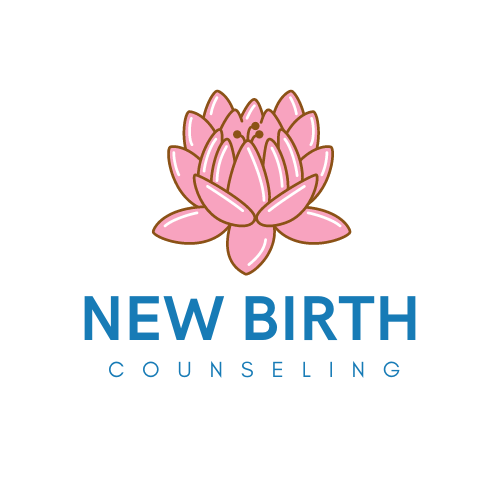Natural Relief: Supplements That Support Depression and Anxiety Recovery
Introduction:
Depression and anxiety are deeply personal experiences that affect millions of individuals and couples every year. While therapy, counseling, and lifestyle changes remain essential pillars of recovery, many people seek additional support through natural remedies. Supplements for depression and anxiety have gained popularity as a gentle, holistic way to complement traditional treatment. At New Birth Family Counseling in El Cajon, California, we believe in a compassionate, whole-person approach to healing. In this post, we’ll explore which supplements may aid in depression and anxiety recovery, how they work, and how to integrate them safely into your wellness journey.
Understanding Depression and Anxiety| A Holistic Perspective
Depression and anxiety aren’t just mental health conditions; they impact your body, relationships, and overall quality of life. At New Birth Family Counseling, we view healing as a holistic process, addressing mind, body, and spirit. While psychotherapy and couples counseling are foundational, many clients are curious about natural ways to support their recovery. Supplements can be an empowering addition, but it’s crucial to understand their role: they’re not cures, but rather supportive tools that may help ease symptoms alongside professional care.
Key Supplements for Depression and Anxiety
There are several supplements that research suggests may support emotional well-being. Here are some of the most commonly recommended depression and anxiety supplements:
- **Omega-3 Fatty Acids**: Found in fish oil, omega-3s help reduce inflammation and support brain health. Studies indicate they may alleviate depressive symptoms and anxiety, especially when combined with other treatments.
- **Vitamin D**: Often called the “sunshine vitamin,” vitamin D deficiency is linked to mood disorders. Supplementing can be particularly helpful for those who spend little time outdoors or live in cloudy climates.
- **B Vitamins (especially B6, B9, and B12)**: These vitamins play a crucial role in neurotransmitter production. Low levels are associated with increased risk of mood disorders, so supplementation can be beneficial for some.
- **Magnesium**: This essential mineral helps regulate the nervous system. Low magnesium levels are linked to anxiety and depression, and supplementation may help with relaxation and sleep.
- **L-Theanine**: Naturally found in green tea, L-theanine promotes calm and can reduce anxiety without causing drowsiness.
- **Probiotics**: Gut health and mental health are closely connected. Probiotics support a healthy gut microbiome, which in turn can have a positive impact on mood.
How Supplements Work in the Body
Supplements for depression and anxiety work by supporting the body’s natural processes. For example, omega-3s help build healthy brain cell membranes, while B vitamins and magnesium are involved in the production of serotonin and dopamine, neurotransmitters that regulate mood. Probiotics foster a healthy gut-brain axis, which can influence emotional balance. It’s important to remember that everyone’s body is unique, and what works for one person may not work for another. Integrating supplements should always be tailored to your individual needs and done under professional supervision.
Safety First; Consulting with Professionals
While supplements can offer natural relief, they should never replace professional mental health care. Some supplements can interact with medications or cause side effects if not used properly. At New Birth Family Counseling, we encourage you to consult with your therapist, physician, or a qualified nutritionist before starting any new supplement. This is especially important if you are pregnant, nursing, or managing chronic health conditions. A collaborative approach ensures that your mental and physical health are both supported safely.
Integrating Supplements with Therapy and Lifestyle Changes
Supplements are most effective when combined with other strategies. Regular exercise, a balanced diet, quality sleep, and mindfulness practices all play vital roles in mental wellness. In our counseling practice, we help couples and individuals develop personalized self-care routines that may include natural supplements as part of a broader recovery plan. This integrative approach empowers you to take an active role in your healing journey, fostering resilience and lasting change.
Setting Realistic Expectations and Tracking Progress
It’s important to set gentle, realistic expectations when trying supplements for depression and anxiety. Natural remedies often take time to show results, and their effects can be subtle. Keep a journal to track your mood, energy levels, and any changes you notice. Share this information with your therapist or healthcare provider, so they can help you adjust your plan as needed. Remember, healing is a process, and every step forward; no matter how small; is meaningful.
When to Seek Additional Support
If you or your loved one are experiencing severe symptoms, such as persistent sadness, hopelessness, or thoughts of self-harm, it’s essential to seek immediate professional help. Supplements can be a valuable part of your recovery toolkit, but they are not a substitute for therapy, medication, or crisis intervention when needed. At New Birth Family Counseling, we are here to support you with compassionate, evidence-based care tailored to your unique needs.
Conclusion:
Exploring natural relief through supplements is a hopeful step on the path to recovery from depression and anxiety. While these remedies can offer gentle support, they work best when integrated with professional counseling, healthy lifestyle choices, and a strong support system. At New Birth Family Counseling, we honor your courage in seeking healing and are here to walk alongside you every step of the way. Remember, you are not alone, and with the right support, brighter days are possible. For more information about us or to book a free consultation, contact us: http://www.newbirthfamilycounseling.com

